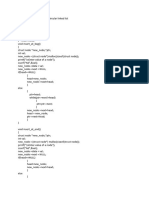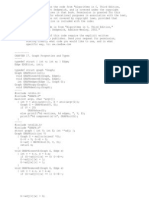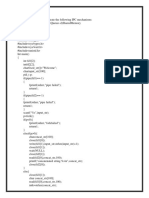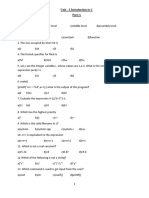0% found this document useful (0 votes)
28 views5 pagesKruskal's Algorithm For Minimum Spanning Tree
The document presents an implementation of Kruskal's Algorithm in C for finding the minimum spanning tree of a graph. It includes the necessary data structures, functions for union-find, sorting edges, and the main function to create a graph and execute the algorithm. The output displays the edges included in the resulting minimum spanning tree.
Uploaded by
Kedar GhadgeCopyright
© © All Rights Reserved
We take content rights seriously. If you suspect this is your content, claim it here.
Available Formats
Download as DOCX, PDF, TXT or read online on Scribd
0% found this document useful (0 votes)
28 views5 pagesKruskal's Algorithm For Minimum Spanning Tree
The document presents an implementation of Kruskal's Algorithm in C for finding the minimum spanning tree of a graph. It includes the necessary data structures, functions for union-find, sorting edges, and the main function to create a graph and execute the algorithm. The output displays the edges included in the resulting minimum spanning tree.
Uploaded by
Kedar GhadgeCopyright
© © All Rights Reserved
We take content rights seriously. If you suspect this is your content, claim it here.
Available Formats
Download as DOCX, PDF, TXT or read online on Scribd
/ 5


























































































